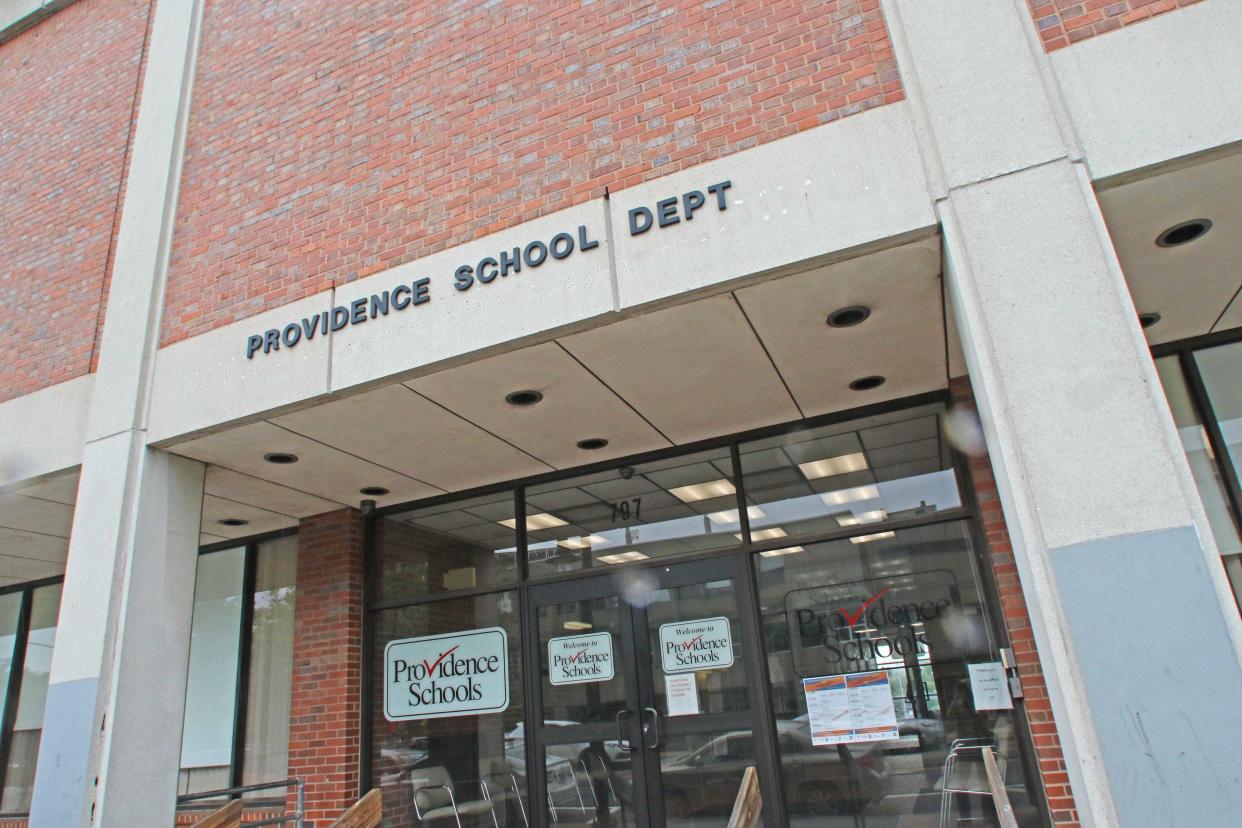Providence Charter panel recommends hybrid school board, 5 members elected, 5 appointed

PROVIDENCE – A hybrid School Board – half elected and half appointed by the mayor – won approval Monday night from the city’s Charter Review Commission.
But not before both the president and vice-president of the Providence School Board voiced their vehement objections to making any changes while the district is under state takeover and in the midst of a pandemic.
“We are the most diverse board the city has ever had,” said vice-president Diagneris Garcia. “When you implement an elected board, you will eliminate diversity. It’s misguided to implement this right now.”
"All of us want strong representation of present and future PPSD families in decision-making about our schools, but we are skeptical that an elected school board is a better path to this end," wrote School Board President Kinzel Thomas in a letter to the commission.
"The board also presently has several young members who were PPSD students just a few years ago," Thomas wrote. "Would this be the case with an elected school board? Given the obstacles to running for office, there are reasons to strongly doubt whether an elected board would achieve these positive outcomes."
Thomas said, however, that a hybrid model would be acceptable, as long as it wasn't adopted until after the state takeover is over.
More: Status quo prevails in the latest version of a Providence school oversight plan
More: Some of Providence School Board's powers would be restored through RI Senate bill
When the state took over the Providence schools in 2019, it stripped most of the School Board's authority, placing it with state education commissioner Angélica Infante-Green.
The hybrid model represents a compromise from the original proposal, which called for 10 elected School Board members, two from each of the five regions. The board currently has nine members, all appointed by the mayor.
Chairman: Hybrid board allows more public input
Commission Chairman John Igliozzi said the hybrid model would provide more input from the public without sacrificing the mayor’s ability to appoint members with specific expertise.
“The hybrid is a potentially better bet because every neighborhood is equally represented. No one from any one neighborhood” could dominate the board, he said. “This approach gives the board more balance. Now the board isn’t accountable to any one person.”
The elections would be nonpartisan, with the elected members serving four-year terms and the appointed members serving staggered three-year terms to ensure continuity. The regions – north, south, east, west and central – each have the same population.
Providence is one of only two school districts to have a school committee appointed by a mayor. Central Falls, whose budget is under state control, is the other.
A flurry of last-minute amendments, including staggered terms for appointed members and ensuring that no more than two appointed members came from any one region, gave two charter commission members pause.
2 panel members say proposal rushed
Ellen Cynar and Tiana Ochoa voted against the proposal because they felt it was rushed.
“We’re talking about one of the most important elements in our community,” Cynar said afterward. “The opportunity for more public engagement would have made me feel more comfortable.”
“It’s such a big decision,” Ochoa said. “The School Board was asking for patience.”
But Igliozzi, who chairs the commission, said time was running out. The charter amendment has to be sent to the secretary of state by the end of August. And the City Council, which must vote on the amendment, must hold public hearings.
If approved, the charter change will go before city voters on the November ballot.
The current board would remain in place until January 2025, when the mayor would make his or her appointments.
An appointed School Board, which dates back to the late 1960s, has come under criticism for years. Three former superintendents have said privately or publicly that they left the district because of interference from previous mayors.
“Prior to the takeover, Providence was the worst-performing school system in Rhode Island,” Igliozzi said before Monday’s meeting. “It wasn’t working. Our message is still the same: Giving 24,000 students a a decent education. They are our future doctors, lawyers ... ”
Tim Duffy, executive director of the Rhode Island Association of School Committees, said the problem with a ward-based elected board is that it tends to become parochial: “Every board member has to get their piece.”
Most school committees, he said, are elected districtwide to avoid partisanship.
Will members stand up to the mayor?
The problem with an appointed board, however, is that board members may be reluctant to stand up to the mayor, Duffy said. Then, he said, there is the possibility of mayoral overreach. Former Mayor Angel Taveras successfully petitioned the General Assembly to give the mayor of Providence the authority to negotiate the teachers’ contract.
Mayor Jorge Elorza said he understands the charter commission’s “deep frustration with our public schools,” but he said there no evidence that shows that elected school boards have greater success in boosting student performance.
“I believe that the core problems with our public schools are that, in practice, principals do not run their buildings, the superintendent does not run the district, and teachers are not incentivized in the right way,” he said. “Moving to an elected School Board will not change any of this.”
Linda Borg covers education for the Journal.
This article originally appeared on The Providence Journal: Providence panel OKs hybrid School Board - 5 elected, 5 appointed

